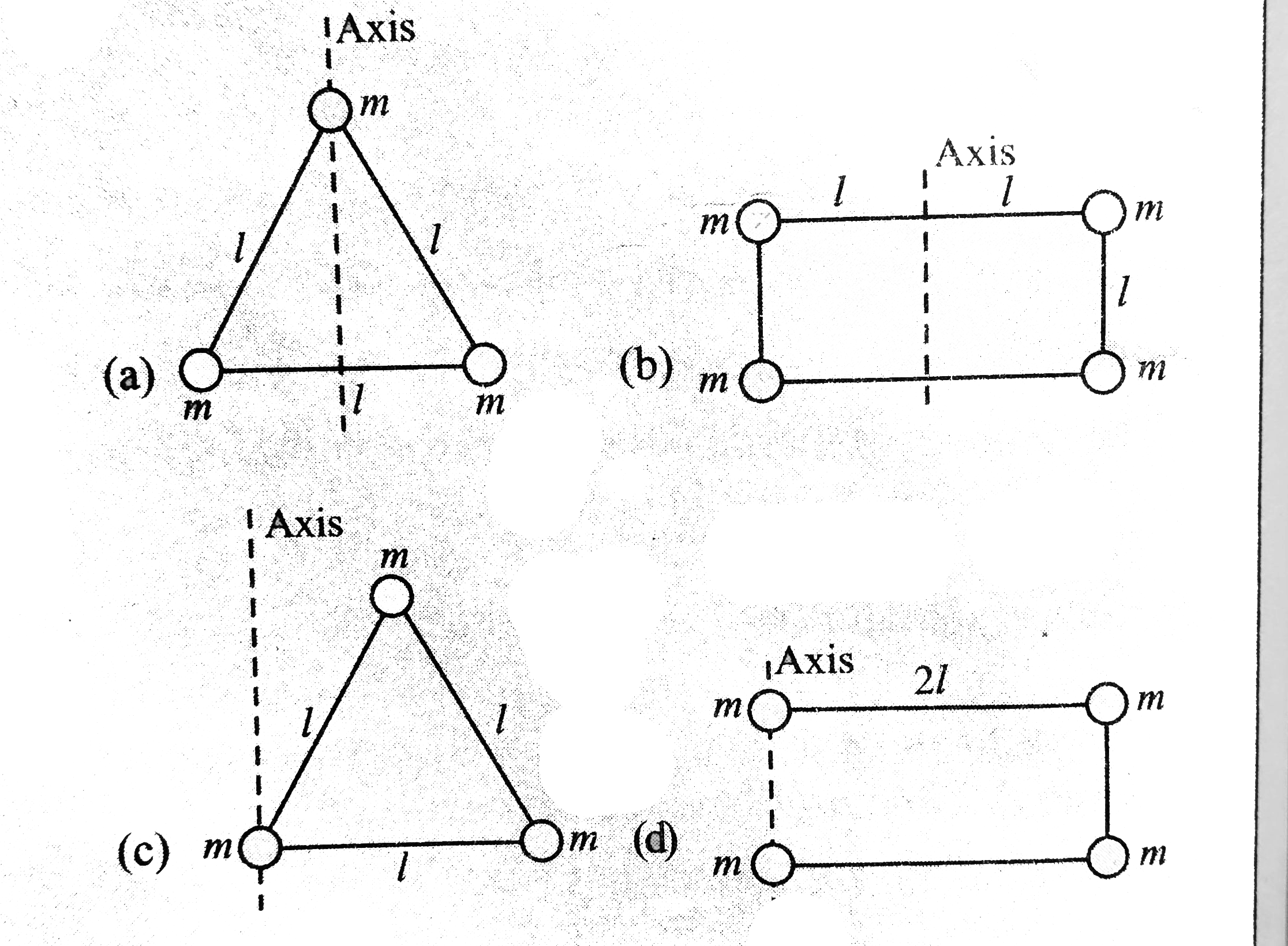Angular momentum of a particle is the moment of _______ of the particle about the axis rotation.
To solve the question, we need to fill in the blank in the statement: "Angular momentum of a particle is the moment of _______ of the particle about the axis of rotation."
1. Understanding Angular Momentum:
- Angular momentum (L) is a vector quantity that represents the rotational motion of a particle about an axis. It depends on both the linear momentum of the particle and its position relative to the axis of rotation.
2. Defining Linear Momentum:
- The linear momentum (p) of a particle is defined as the product of its mass (m) and its velocity (v).
- Mathematically, p=mv.
3. Position Vector:
- The position vector (r) of the particle is the vector that points from the axis of rotation to the particle. The distance from the axis of rotation to the particle is denoted as D.
4. Angular Momentum Formula:
- The angular momentum (L) of a particle about an axis can be expressed as:
L=r×p
- Here, r is the position vector, and p is the linear momentum.
5. Substituting Linear Momentum:
- Substituting p=mv into the angular momentum formula gives:
L=r×(mv)
6. Moment of Momentum:
- The term "moment of momentum" refers to the angular momentum of the particle about the axis of rotation. Therefore, we can conclude that:
- The angular momentum of a particle is the moment of momentum of the particle about the axis of rotation.
Final Answer:
Angular momentum of a particle is the moment of momentum of the particle about the axis of rotation.
---
- Angular momentum (L) is a vector quantity that represents the rotational motion of a particle about an axis. It depends on both the linear momentum of the particle and its position relative to the axis of rotation.
- The linear momentum (p) of a particle is defined as the product of its mass (m) and its velocity (v).
- Mathematically, p=mv.
- The position vector (r) of the particle is the vector that points from the axis of rotation to the particle. The distance from the axis of rotation to the particle is denoted as D.
- The angular momentum (L) of a particle about an axis can be expressed as:
L=r×p
- Here, r is the position vector, and p is the linear momentum.
- Substituting p=mv into the angular momentum formula gives:
L=r×(mv)
- The term "moment of momentum" refers to the angular momentum of the particle about the axis of rotation. Therefore, we can conclude that:
- The angular momentum of a particle is the moment of momentum of the particle about the axis of rotation.
Angular momentum of a particle is the moment of momentum of the particle about the axis of rotation.
Topper's Solved these Questions
- System of particles & rotational MotionBOOK - SL ARORACHAPTER - System of particles & rotational MotionEXERCISE - EXERCISE
353 Videos
- ROTATIONAL MOTIONBOOK - SL ARORACHAPTER - ROTATIONAL MOTIONEXERCISE - Problem for self practice
90 Videos
- Thermal Properties of MatterBOOK - SL ARORACHAPTER - Thermal Properties of MatterEXERCISE - Exercise
449 Videos
Similar Questions
Knowledge Check
The angular momentum of a particle is
Aparallel to its linear momentumBperpendicular to its linear momentumCinclined to its linear momentumDa scalar quantityA body is rotating with angular momentum L. If I is its moment of inertia about the axis of rotation is I, its kinetic energy of rotation is
A12IL2B12ILC12(I2/L)D12.L2IA particle has a linear momentum p and position vector r. the angular momentum of this particle about the origin will not be zero under the conditions
Ap=0Bp is perpendicular to r and does not cross rCp is anti-parallel to rDthe particle passes through the origin.
The angular momentum of a body is 31.4 Js and its rate of revolution is 10 cycles per second. Calculate the moment of inertia of the body about the axis of rotation.
View SolutionAngular momentum of the system of particles changes when
View SolutionAngular momentum of the particle rotating with a central force is constant due to
View SolutionAngular momentum of the particle rotating with a central force is constant due to
View SolutionAngular momentum of the particle rotating with a central force is constant due to.
View Solution

